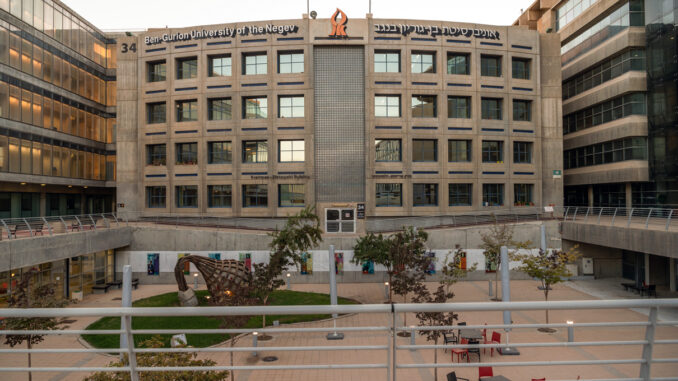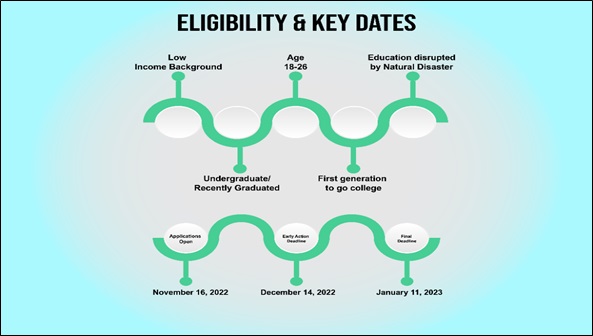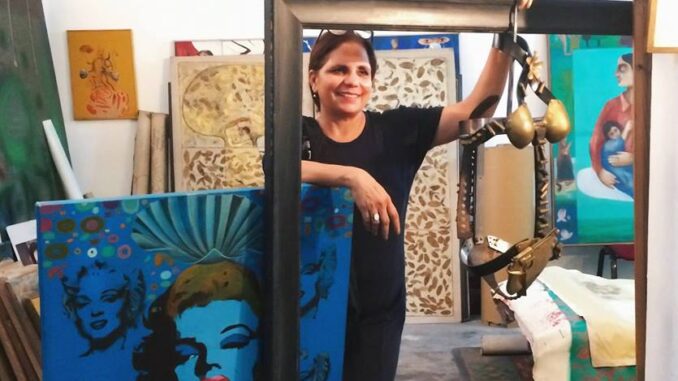
Mumbai, 13 December 2022: After what seemed like almost an eternity, the students of SAI International Education Group revived the 13th edition of one of the most quintessential flagship events that bolster up the culture of SAI & the country’s Largest School-Based, Student-Driven Mega Cultural Fests, UNWIND with the theme “Fantasy: Embrace the Unknown”, entertaining a footfall of 30,000+ people. This was a day-long, event managed by the students of Class XI from the Commerce & Humanities stream with handholding support from mentors.
UNWIND, a brainchild of Founder–Chairman Dr. Bijaya Kumar Sahoo, held every year with the sole motto to learn, lead and serve, provides a mega forum, to inculcate entrepreneurship, leadership & 21st-century learning skills in the students, beyond the learning horizon of books and imbibe experiential learning, providing hands-on experience to the students. The event housed more than 100 food stalls having a wide array of scrumptious national and international cuisines and & 60+ game stalls with fun-filled activities.
UNWIND 2022 was graced by the chief guest, Dr. Omkar Rai, Executive Chairman of Startup Odisha, Government of Odisha who declared the event open for all in the inauguration ceremony. While addressing the students and appreciating the cultural fest, he said, “I am happy to be here at UNWIND 2022 as this platform proffers an entrepreneurial outlook in children & inculcates leadership skills in them, from a really young age, as envisioned by my friend, mentor & guide Late Dr. Bijaya Kumar Sahoo.” His words were embodied in the efforts of our budding entrepreneurs, who have worked tirelessly to make this event a huge success.
The kids & inmates of Pratibha Ashram, a childcare home, visited SAI International School to attend UNWND 2022 & their presence added to the merriment of the event. There was a stall dedicated to the 100 Library Project, a brainchild of visionary Founder-Chairman, Dr. Bijaya Kumar Sahoo which grabbed everyone’s attention.
Speaking on the occasion Chairperson, of SAI International Education Group Dr. Silpi Sahoo said, “It gives me immense joy to see my SAIoneers of Commerce and Humanities put up such a mega and immersive fest for UNWIND 2022. The vision of Founder-Chairman Dr Bijaya Kumar Sahoo was to build critical thinkers, and problem solvers with insightful and focused thoughts, the future entrepreneurial citizens of India. He dreamt of creating global leaders who are critical-thinking innovators with flourishing careers and ready to reshape the world for the better. I am elated to see my SAIoneers walking on the path laid down by our Founder –Chairman.”
The whole day was punctuated by multiple enthralling activities, including delectable delicacies, games, adventure sports, competitions, and an array of high-voltage cultural performances by students. Adventure sports along with e-games & virtual reality escapades were a huge hit. Students of Play Group-Class XII attended the carnival with their parents & proactively participated in the intriguing gamut of activities & joined in the fun & frolic for a fascinating experience.
The Women’s Self-Help Groups (WSHGs) under the aegis of ‘Mission Shakti’, Govt. of Odisha had also put up a stall at this mega event this year. This endeavor showcased financial independence & women’s empowerment. Holistic Parenting Awards were also presented to the achievers of 2021-22 for their outstanding performance, their relentless efforts, perseverance, and devotion in the CBSE Class XII Board exams. The SAIoneers left no stone unturned in showcasing their talents, be it in the form of music, dance or plays. Even Team Unwind 2022 joined in on the fun, evoking thunderous cheers from the crowd as they danced to their hearts’ content in a special flash mob.
The highlight of this fest was, indisputably, the evening concert, featuring a spectacular fireworks display at the end. The one who shone brightest that night, however, was the star of the event, renowned musician and Bollywood Singer, Rituraj Mohanty right from the Unwind GrandStand. As the songs and laughs rang out in the dark, the thunderous cheers of the SAIoneers nearly brought the skies down. Full of countless moments frozen eternally in time – Unwind 2022 will live on forever in everyone’s hearts.



 Pune, 13 December 2022: FLAME University, the pioneer of liberal education in India, recently held a two-day workshop as part of a larger ongoing research project called, ‘The Ownership of Public History in India’ (TOPHI) funded by the British Academy. Project TOPHI aims to bring historically marginalized peoples and areas of knowledge into school and university pedagogy. This event, hosted on the university campus on the 8th and 9th of December 2022, explored alternatives to mainstream curricula in telling new stories, and creating new lesson plans, across visual, linguistic and food traditions.
Pune, 13 December 2022: FLAME University, the pioneer of liberal education in India, recently held a two-day workshop as part of a larger ongoing research project called, ‘The Ownership of Public History in India’ (TOPHI) funded by the British Academy. Project TOPHI aims to bring historically marginalized peoples and areas of knowledge into school and university pedagogy. This event, hosted on the university campus on the 8th and 9th of December 2022, explored alternatives to mainstream curricula in telling new stories, and creating new lesson plans, across visual, linguistic and food traditions.
